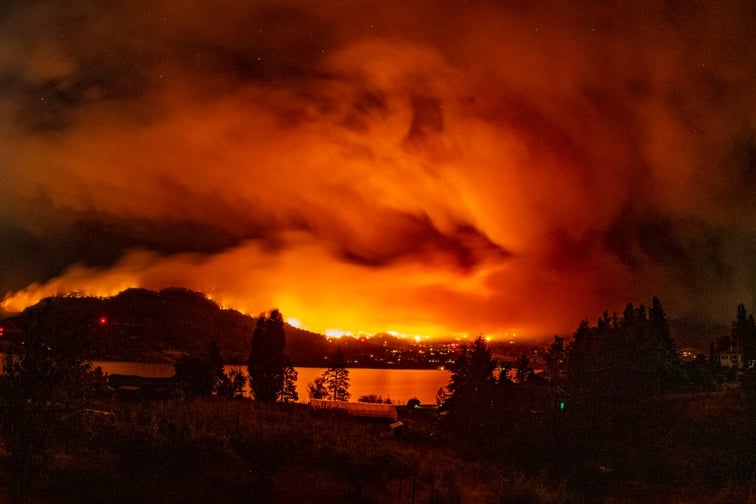

The Insurance Bureau of Canada (IBC) has advised residents of British Columbia to brace for a challenging wildfire season.
The warning comes amid forecasts from government officials and specialists indicating a heightened wildfire risk this year.
Rob de Pruis, the IBC’s national director of consumer and industry relations, highlighted the severe wildfire activity within British Columbia.
“As reported by the BC Wildfire Service, there are more than 90 active wildfires across the province, with many still burning from last year's record-breaking season,” he noted. “The 2023 wildfire season was the most destructive in British Columbia’s history, and 2024 has the potential to be another intense wildfire year.
“Last year, fires started very early in the spring, spread extremely quickly, and kept emergency responders busy throughout the summer. More than 2.84 million hectares burned, and thousands of people in affected areas had only a short time to evacuate. Sadly, six wildfire personnel lost their lives, and hundreds of homes were destroyed or damaged.”
Data as of March 1 indicate a significantly lower-than-average provincial snowpack, at 34% below the norm.
Additionally, warmer conditions and scarce precipitation have severely impacted nearly half of BC’s 34 water basins.
The BC Wildfire Service provides ongoing updates on fire dangers, active wildfires, and fire restrictions across the province through its website and wildfire situation app.
The IBC, which also offers guidance on insurance queries, has stressed the importance of readiness and adherence to local fire bans and advisories.
To enhance wildfire preparedness, the association suggested several steps, including installing and maintaining smoke and carbon monoxide alarms, creating emergency plans and disaster safety kits, understanding insurance coverage, and taking specific precautions if living near forests.
De Pruis added: “In the event that you are evacuated, make sure you plan as you could be out of your home for more than one or two days. Last year, many individuals and families were displaced for several days or longer.”
What do you think about this story? Share your thoughts in the comments below.
